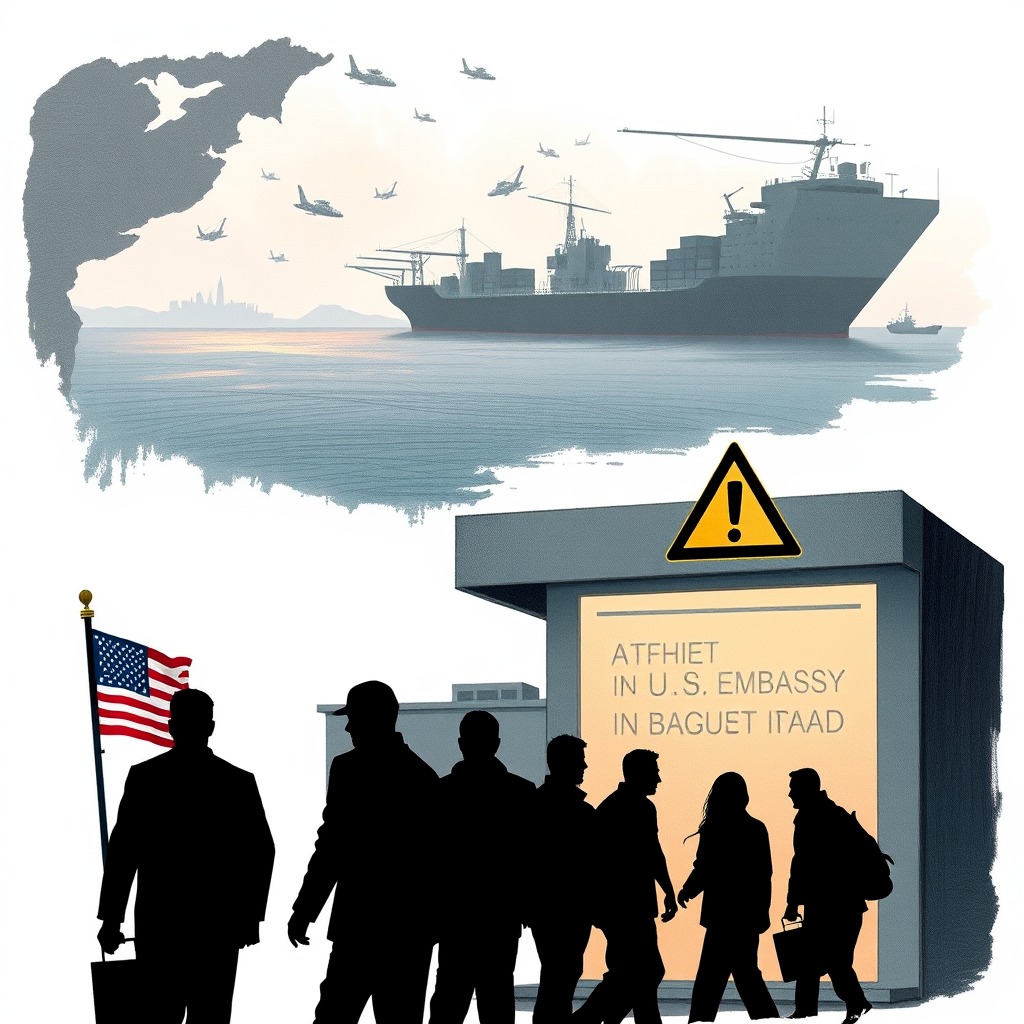US Embassy Evacuates Iraq Amid Iran Threats

Washington is preparing to reduce its diplomatic staff in Iraq, along with authorizing departures from Bahrain and Kuwait, as anxieties escalate regarding potential conflict with Iran. Multiple U.S. officials confirmed to several news outlets, including the Associated Press and Reuters, that nonessential personnel will be removed from the U.S. embassy in Baghdad. The exact number of departing officials remains undisclosed.
This decision follows a period of stalled negotiations concerning Iran’s nuclear program and increasingly bellicose rhetoric from both Washington and Tehran. President Trump, in a podcast released Wednesday, expressed diminishing optimism about reaching a viable agreement to limit Iran’s nuclear capabilities, reiterating past threats of military action. Simultaneously, Iranian Defense Minister Aziz Nasirzadeh warned that Iran would target U.S. military installations in the region should negotiations collapse and tensions further escalate.
The move to partially evacuate the embassy isn’t simply a procedural adjustment; it’s a clear signal of heightened concern within the Biden administration about the deteriorating security situation. While officials haven’t publicly detailed the specific threats prompting the drawdown, the decision suggests a credible assessment of risk to diplomatic personnel.
Beyond the diplomatic sphere, the escalating tensions are already impacting commercial activity. A U.K. maritime trade agency issued an advisory Wednesday, warning vessels operating in the region of increased risks due to potential military escalation. This highlights the broader implications of the U.S.-Iran standoff, extending beyond direct military confrontation to potentially disrupt vital shipping lanes and regional stability.
The situation is deeply concerning. While diplomatic efforts haven’t entirely collapsed, the current trajectory suggests a dangerous slide toward potential conflict. The partial evacuation, while a prudent measure to protect personnel, underscores the gravity of the situation and the urgent need for renewed, substantive dialogue to de-escalate tensions before they spiral out of control. The lack of transparency regarding the specific threats is also troubling; a clearer articulation of the risks could help inform public understanding and potentially bolster support for diplomatic solutions.